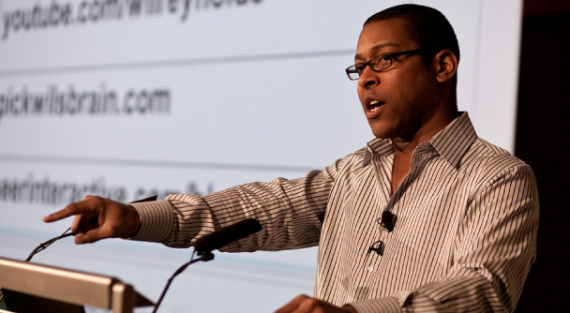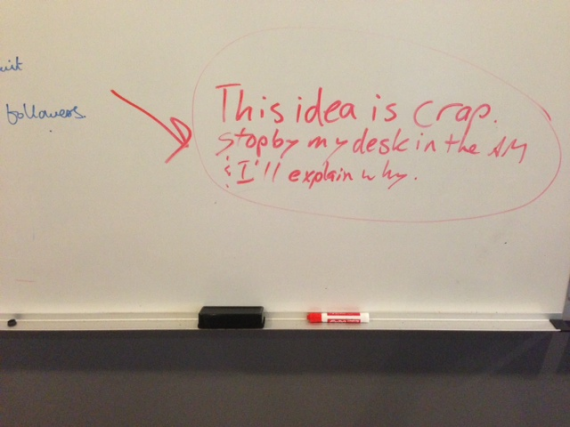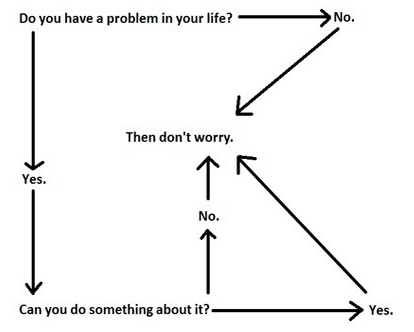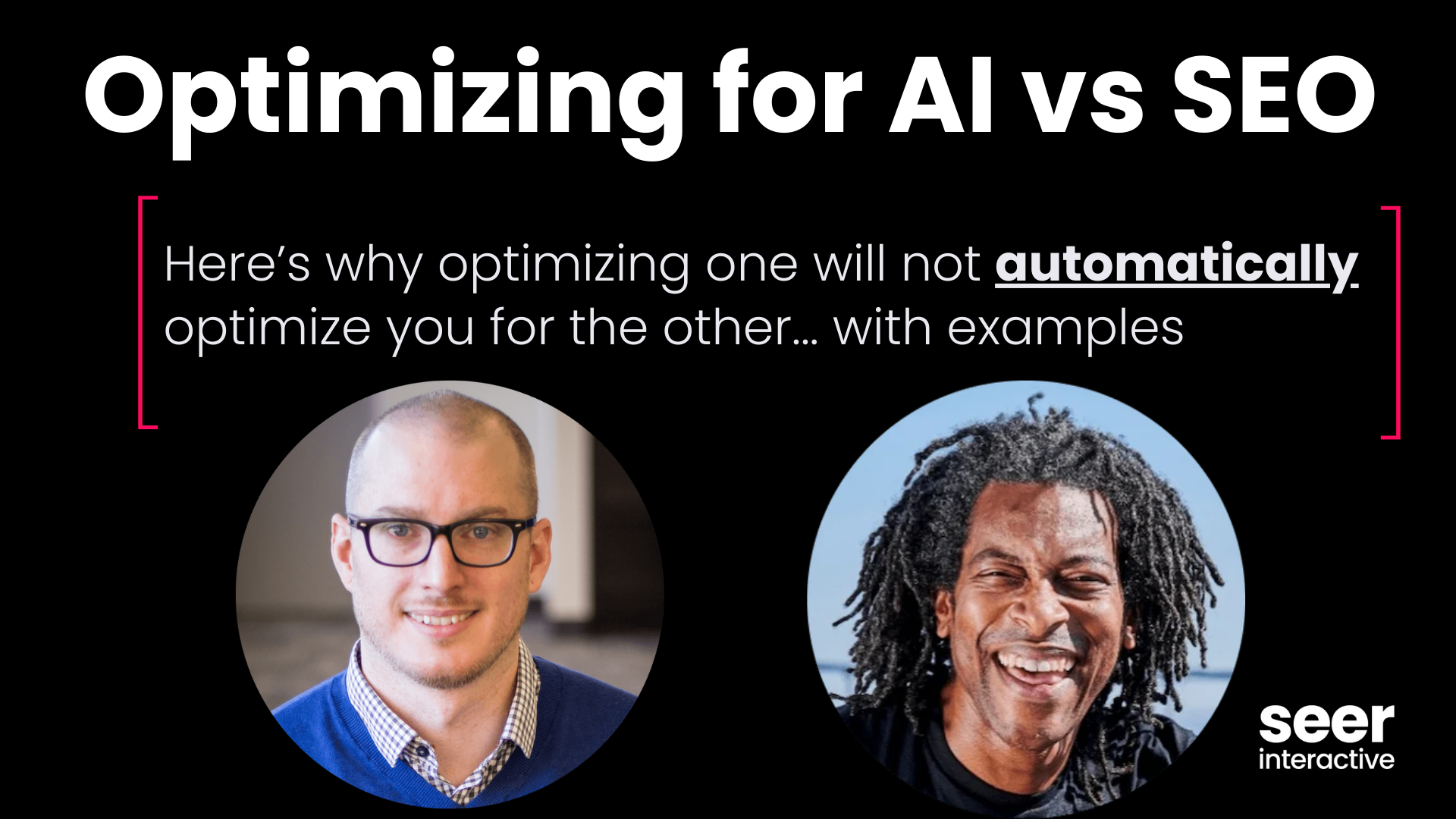Let me start this by saying I have so much to learn. I’m extremely grateful for the experiences & knowledge gained over the last 5+ years at SEER and hope to learn even more over the next 5.
At one time or another since starting, I’ve been on the wrong end of almost every one of these items. Below is a list of expectations & lessons learned I wish I already had under my belt on my first day.
1. Things will not work out.
Things may not work out the way you want more often than not. Follow this simple chart:
2. Don't talk about what you don't know
One of my first weeks at SEER I was on a client call. I don't remember the question that was asked, but gave an answer I was about 50% sure about. In jumps Wil to protect the business "Actually, Adam's not right. What you should do is...."

Nothing puts you in your place like the owner correcting you to a client. There's nothing with saying "I don't know" to a client. Most decent clients will actually appreciate you taking a question back to your team to get them the best answer.
3. It’s alright to highlight concerns and critiques with your coworkers
I've worked at places in the past where pride of the owner trumped correcting him. If you work at a place like that, find that exit plan. Helping coworkers grow helps you & the company become more solid. When coworkers are incorrect, like #2, call it out. Letting a recommendation go, like suggesting a 302 when it needed to be a 301 will come back to haunt you horribly in the end.
4. Sometimes you will care more about a website than the person that hired you
It can be frustrating, but optimizing a site is sometimes a third or fourth priority for someone that is wearing several hats. It happens and it's OK. Set expectations about what they could be losing out on if recommendations aren't implemented. Put it in dollar figures if possible.
"For every month we let this go, it looks like we're roughly losing out on 100 conversions that are worth a total of $15k.
5. Say exactly how you feel & avoid being passive aggressive
You will feel frustrated/disrespected/angry/confused with people. Being passive aggressive is immature and I’ve been extremely immature in the past. Clarify. Talk about your feelings. Work it out. Adam at 30 trumps Adam at 27 by leaps & bounds in how to handle situations and there's a ton more room to grow.
A good self policing policy - don't write emails or blog posts when angry or upset. Go walk a dog, eat lunch, go to sleep, eat a snickers. 9/10 times you’ll feel differently the next day or realize whatever it was, it isn’t a big deal. Plus you might find an adorable pup to adopt like these guys at Street Tails shelter in Philadelphia.
6. With no agenda for meetings, time will be wasted
*From Gaz Copeland, have a recap/minutes for the meetings or else it's all just talk with no accountability.
7. There's a thin line between looking for creative inspiration on reddit, oddee, Digg (circa 2008) vs wasting time

You might have great time management skills or you might need to hire someone to slap you when off task like this guy did. Those sites are all fun places, but there's most likely bigger & better things to do with your time.
8. Your will have ideas that are garbage. No one has gold every time.

I once came into the office and had my idea from the night before on a whiteboard circled with an arrow that said “This is crap, stop by my desk tomorrow & I’ll explain.” No offense was taken, my potential test had holes shot through it & time was saved. Have tough skin, trust the person is coming from a good place, improve & save time.
9. Be receptive to feedback
I offer the option for phone feedback to almost everyone I interview. I ask for feedback on presentations about what could have been done better & how the audience received it. It’s not being told you’re wrong & you don’t need to have a defensive rebuttal about why you did or said. It’s 100% about self-improvement when receiving & asking for feedback.
10. Don't get stuck in a routine when optimizing
There are many ways to optimize a site & Google changes every day. Pivot & keep up. Test. There isn't a cookie cutter fit for SEO & if you're working with a company that dumps you into their network that has always worked, run for the hills.
11. Hiring - mistakes will be made
Ask non-work related questions like talking about their favorite sport, explaining a process outside of SEO, talking with them about where they’ve traveled. The point isn’t to disqualify someone because they haven’t traveled to a certain continent, but to see how they are able to explain situations, show clarity of their answers, do they get flustered, do they only talk about themselves, did a question unveil a big ego (and they can).
SEO can be taught, but being able to understand business, people & social situations are qualities that are extremely difficult to learn.
12. Write thank you notes
Because of Wil & the culture here, this has become much more regular. If you can’t think of someone you need to thank, stop and look around. Who got you to where you are today? Who helped you succeed with a project? It doesn’t matter if it’s the person next to your, an old boss, or a police station for finding you/stretchering you to the first aid tent after a poor marathon performance (in 2011, I owed them a big thank you). There is always someone to thank.
There are a few boxes of Thank You notes sitting on top of desks at SEER with stamps, letters & envelopes. This makes it easy to remember.
13. If you're unsure of something, clarify
It doesn’t matter if you’re working with an intern or a CEO, if you feel you need to make sure you’re all on the same page, do it. I’ve sent emails over to coworkers & clients if they ended a sentence in “…” just to make sure there wasn’t anything else to be said or any feedback they needed on my end.
Most people read it, but if you haven't seen the Moz miscommunication posted on Rand's blog from a few weeks ago, it's a quick read on why clarity is so important.
14. Don't be agreeable if you don't agree
You can ask questions, you can challenge why, you can trim a process, you can suggest a better way. You can be an intern talking to the owner and that should make no difference. We’ve had several processes changed at SEER because people took time to understand why we have them in place, saw a flaw or room for improvement, then saved us all time.
15. Always bring it back to business
There are a lot of ideas thrown around with SEER at 65+ people. Behind every recommendation for a client should be a statement that says "By doing this, it will positively impact the business goals by _________ ". Always bring it back to goals. That blank could be filled with a percentage or some type of explanation on the positive impact of us hitting goals & winning for a client.
Honorable mention lesson - always have fun.
Looking forward to many more years at seerinteractive.com.



